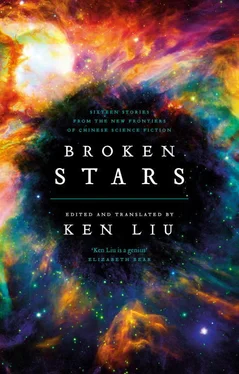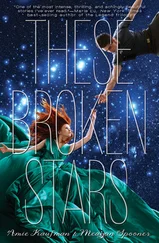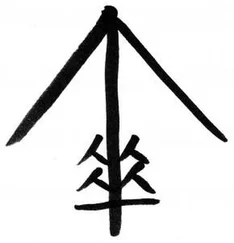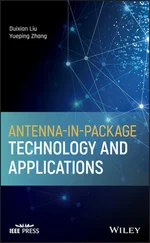As the twenty-first century drew closer, another important Chinese SF magazine came to life in the Shanxi Province. Science Fiction King («科幻大王») started to publish in 1994, changing its name to New Science Fiction («新科幻») in 2011. The peak sales were around 12,000 copies per issue in 2008. Unfortunately, at the end of 2014, New Science Fiction stopped publishing due to its relatively low sales. Science Fiction Cube («科幻Cube») is the youngest member of the current existing SF prozine market in China. Its first three issues only came out in 2016, and each issue sold about 50,000 copies. Some other SF magazines appeared and disappeared in this period, including World Science Fiction («世界科幻博览») and Science Fiction Story («科幻-文学秀»). Other publications, like Mengya («萌芽»), ZUI Found («文艺风赏»), and Super Nice («超好看»), publish science fiction as well as other genres.
3.
BIRTH OF EARLY CHINESE FANDOM
The first Chinese SF fan group appeared in Shanghai in 1980. Philip Smith from the University of Pittsburgh visited Shanghai International Studies University (SISU) and delivered a course on science fiction literature. A scholar who worked at SISU at the time, Wu Dingbo (吴定柏) regards the science fiction club formed there as the first Chinese SF fan group. In 1981, Science Fiction Research Associations were founded in several cities like Shanghai, Guangdong, Heilongjiang, Ha’erbin, Liaoning, and Chengdu, and then all were swept away by the anti-spiritual-pollution campaigns. And it wasn’t until 1988 that the Science Fiction Literature Committee was founded in Sichuan Writer’s Association, chaired by Tong Enzheng. The committee aimed to unite science fiction writers in Sichuan and make Chinese SF writing prosper from its nadir.
In 1990, Yao Haijun (姚海军) established the Chinese Science Fiction Readers’ Association with the help of his fanzine Nebula .
In the 1990s, regional fan groups and university clubs boomed all around China. The Science Fiction World magazine also founded its own fan club.
In 1998, the first online SF fan groups appeared in China. Chinese Science Fiction Online Association (中华网上科幻协会) and Feiteng Science Fiction Writing Group (飞腾科幻创作小组) were established. The latter one was renamed Feiteng SF Corps (飞腾科幻军团) after it expanded. Some of the other important online fan groups were SF Utopia (科幻桃花源), River of No Return (大江东去科幻社区), and Space Lunatic Asylum (太空疯人院). Unfortunately none of them exist today. Some of the active members continued their discussion in the Science Fiction World group (with no relation to the magazine) on douban.com (a social networking website popular in China based on hobbies).
Quite a number of Chinese SF authors were active members of these fan groups.
4.
FANZINES
China’s first fanzine was Nebula («星云»), edited by Yao Haijun from 1989 to 2007. During these years, forty issues were published. Yao Haijun was a worker in a logging factory in Heilongjiang when he started the fanzine. Now he is the editor in chief of Science Fiction World magazine. Nebula played an extremely important role in the development of modern Chinese fandom, and even in the history of Chinese science fiction at large. It was the bridge between editors, writers, researchers, and readers. The peak circulation was more than 1,200 copies per issue.
Some of the other fanzines prevalent in the 1990s were Galaxy («银河»), edited by Fan Lin (范霖) in Zhengzhou; Up to the Ladder toward the Sky («上天梯»), edited by Xu Jiulong (徐久隆) in Chengdu; Planet 10 («第十号行星») and TNT , edited by Wang Lunan (王鲁南) in Shandong; and Universe Wind («宇宙风»), edited by Zeng Deqiang and Zhou Yukun (曾德强、周宇坤). There were also letterzines, such as Nebula , sent to subscribers all around the country. However, most of these only survived a couple of years due to lack of money and time.
Regional SF fan groups also published their fanzines. Cubic Light Year («立方光年») in Beijing and Supernova («超新星») in Tianjin were two of the key representatives. Receiving the support of many SF writers, Cubic Light Year was of quite high quality. However, both zines only published a few issues because it was hard for the editors and writers to keep running the projects on a voluntary basis.
University SF clubs also publish their fanzines, but these too have a short lifespan. One exception to the rule is Critical Point («临界点») published by Sichuan University Science Fiction Association, which published its special twentieth-anniversary issue in 2013.
With the dawn of the Internet era, numerous netzines appeared. Chinese Science Fiction Online Association published Sky and Fire («苍穹火焰») in 1998 and 1999, with a total of seven issues, and River of No Return published Edge Review («边缘») in 2005 and 2006, with a total of four issues. New Realms of Fantasy and Science Fiction («新幻界») published thirty-two issues from 2009 to 2013, which seems like a miracle, since all the issues are of very high quality and could be downloaded online for free. They even published two printed anthologies. Some of the stories published on New Realms of Fantasy and Science Fiction have since been translated into English, such as “Invisible Planets” («看不见的星球», 2010), by Hao Jingfang.
Some of the other netzines that are still active today in China are Chinese New Science Fiction («中国新科幻») and Science Fiction Collects («科幻文汇»). Hopefully, they can live long and prosper.
5.
AWARDS AND MAJOR EVENTS
The Galaxy Award (银河奖) is the highest honor an author can achieve in the Chinese science fiction field, and for a long time, it was the only one. The Galaxy Award was first established in 1986 by two magazines, Science Fiction World (previously Scientific and Literary ) and Wisdom Tree («智慧树»). After Wisdom Tree ceased publication, Science Fiction World became the only organizer of the Galaxy. The Galaxy is only awarded to works published in or by Science Fiction World , with readers voting for their favorites. However, the Best Short Story of 2016 Galaxy Award was awarded to “Balin” by Chen Qiufan, which was published in People’s Literature , making the first exception.
An award open to all SF works published in the Chinese language thus became necessary. The Chinese Nebula Award (全球华语科幻星云奖) was established in 2010, organized by the World Chinese Science Fiction Association. All members of the association can nominate their favorites and vote for them; the vote is also extended to the public. The final winner is selected by a panel of judges from five shortlisted works or candidates.
The major annual SF events in China take place around these two awards. Usually, there are con-like carnivals for fans. They do not follow specific rules, but usually involve award ceremonies, red-carpet walks, late night roadside barbecues, and drinking. Science Fiction World also hosts a seminar on writing after the Galaxy Award Ceremony every year, while World Chinese Science Fiction Association events have started to look like international cons. Cat Rambo, president of Science Fiction and Fantasy Writers of America; Taiyo Fuji, president of Science Fiction and Fantasy Writers of Japan; and Crystal Huff, cochair of Worldcon 75, were invited as guests for the 2016 Chinese Nebula Award Weekend.
Читать дальше












